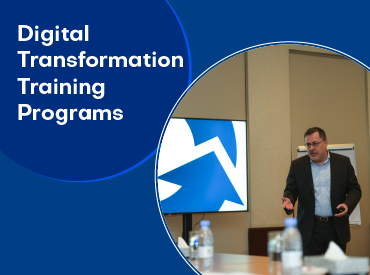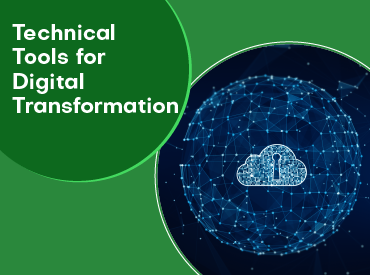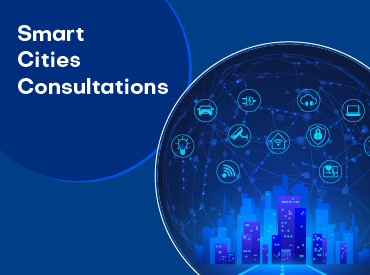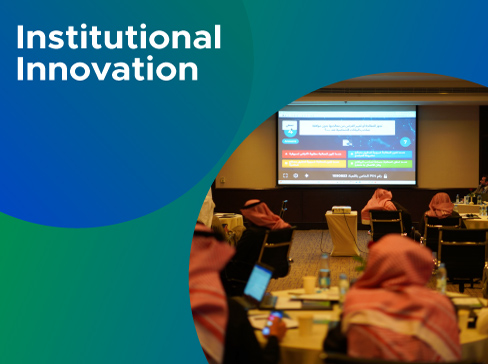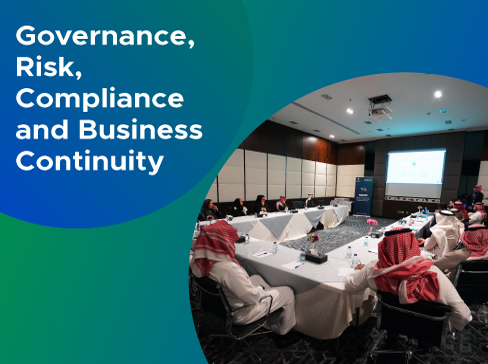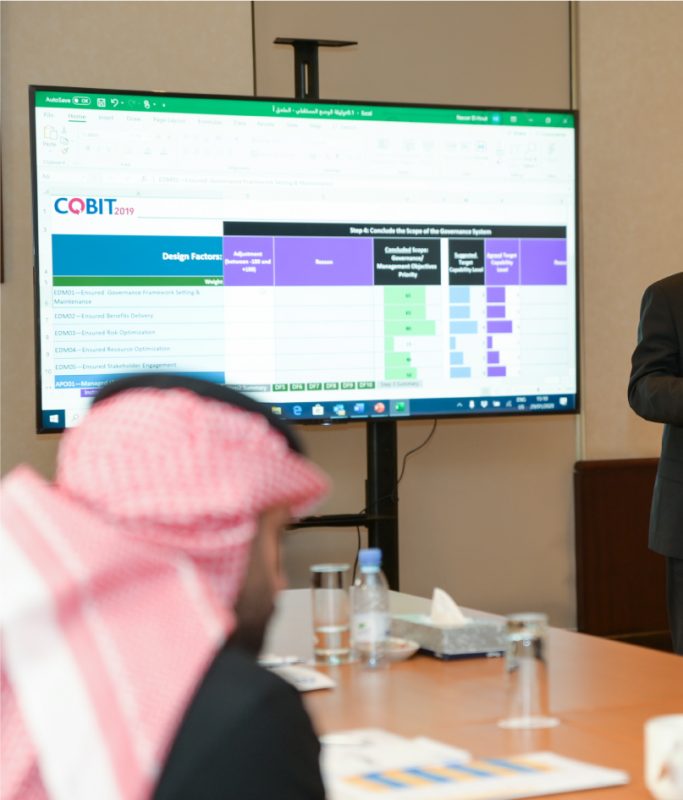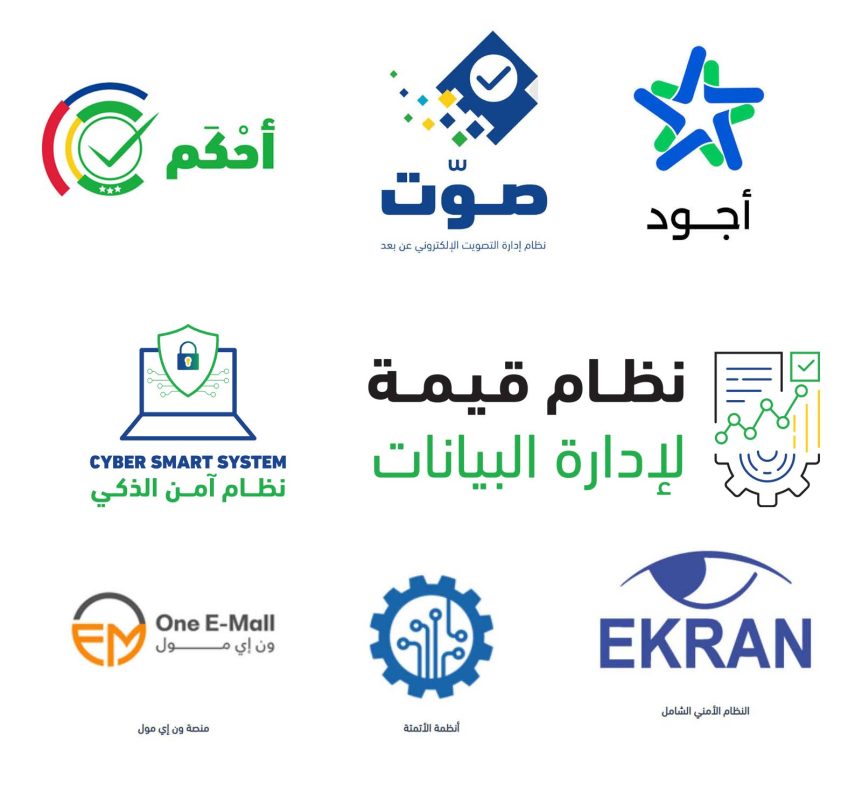Measuring compliance of Digital Services Management Policy and Skills Development
Measuring compliance of Digital Services Management Policy and Skills Development
In light of the acceleration of digital transformation initiatives in the Kingdom, government agencies today must focus on implementing national policies developed by regulatory bodies, perhaps the most prominent of which is the policy of managing digital government services and developing skills, to become more efficient in developing its services and making them available through digital channels using modern technologies and innovation-focused approaches, and ensuring that the services provided are used in optimal ways.

What is the policy of managing digital services and skills development?
It is one of the components of the regulatory framework for digital government work, which includes policies classified among international best practices, developed by the Digital Government Authority to accelerate the efforts of sustainable digital transformation of the government sector in the Kingdom.
It aims to provide digital government services that meet the needs and expectations of beneficiaries by setting several controls that all government agencies in the Kingdom must apply as they seek to design, develop, operate, and deliver their services through digital channels.
In addition to setting controls for the digital content of these services, building the workforce and mechanisms for developing competencies and managing talent, and aligning the digital services provided by government agencies with the evaluation indicators issued by the United Nations. It also covers Digital Service Lifecycle approaches.
The Digital Government Authority is the authority responsible for digital government and the national reference in its affairs, as it works to regulate digital government work, platforms, websites, digital government services, and government networks, in addition to issuing measurements, indicators, tools, and reports, to measure the performance of government agencies and their capabilities in the field of digital government.
What are the benefits of a digital services management and skills development policy?
Entities benefit from implementing and complying with the digital services management and skills development policy in several ways, we mention some of the benefits as follows:
- Developing procedures for designing digital services in the entity
- Developing digital services management methodologies in entities
- Increasing customer satisfaction with the digital services provided
- Achieving sustainable digital transformation and accelerating priority initiatives
- Developing digital content for digital government services and facilitating access to it
- Achieving enterprise excellence and assessing the organizational maturity of digital services within the entity.
- Employing digital transformation technologies in better ways that contribute to saving costs, time and effort
- Aligning practices within the entity with international and local service evaluation indicators and practices
- Building digital capabilities and skills, developing talent management approaches and developing competencies within government agencies
10. Develop policies that ensure the building and development of priority government services in line with the needs of beneficiaries and live up to their aspirations, and even anticipate them, and facilitate access to them in the appropriate place and time.

Scope of the policy – where does it apply?
The scope of the policy includes aspects related to the management of digital government services and the development of digital skills in all of the following entities:
- Government agencies, including ministries, public authorities and institutions, councils, national centers and the like
- Private sector establishments that act as operators and developers of government agencies’ services
General Themes of Digital Services Management Policy and Skills Development
The Digital Services Management and Skills Development Policy has 5 main themes:
1. Design of digital services
The first theme includes a number of provisions and controls that entities should take into consideration during the process of designing digital services at all stages, including:
- Adopting a strategy for designing digital government services that is consistent with the strategic directions and policies of relevant regulatory bodies
- Ensuring that the procedures for designing digital government services are highly flexible and give them a high ability to adapt to rapid technical changes
- Taking into account the privacy of beneficiaries and ensuring that relevant data privacy requirements are met during the service design stages
- Adherence to cybersecurity requirements, especially those issued by the National Cybersecurity Authority, at all stages of designing digital services
- Develop procedures to ensure the quality of digital services
- Deploying digital government services and linking them with the unified national portal
- Establishing special channels to receive beneficiary feedback and ensuring that procedures are included to follow up and address them
- Applying the principle of “requesting beneficiary data once”
Measuring compliance of the digital services management policy is our specialty, so do not hesitate to ask
2. Developing the digital content of services
This theme includes a number of controls and guidelines related to providing digital government services content and data through various channels, including:
- Include mandatory content for services in accordance with what is issued by regulatory authorities and what is stated in the unified Saudi national platform for government services
- Include metadata standards in service design stages
- Conduct a periodic and regular review to ensure the accuracy of services data
- Providing all service content in Arabic and English
- Ensuring the implementation of accessibility requirements for persons with disabilities, and compatibility with international (W3C) standards
3. Providing digital services through unified channels
This theme includes controls and provisions related to the provision of digital government services on new digital channels, some of which are as follows:
- Designing services suitable for smart devices and mobile phones
- Apply specifications set by mobile operating system providers, such as Android and iOS
- Include commonly used “touch gesture” styles
- Evaluating the quality of services based on their suitability for phones and smart devices
4. Digital skills development
To ensure the improvement of digital services and the transition from analog to digital work in government agencies, it must be accompanied by building the digital skills and qualifications of government employees, as the human element is the most important in the digital transformation journey, and developing talent management at all levels so that they can design digital government services in effective ways and reflects positively on the beneficiaries.
It is important to support your employees with the skills and attributes that enable them to face the rapid changes in the business environment and understand the opportunities presented by new and emerging technologies. Therefore, the digital services management and talent development policy imposes controls on entities to build digital skills with smart paths and create a culture of continuous learning among their employees, through:
- Develop annual learning plans to build digital skills among national cadres
- Develop annual plans to provide technical and knowledge resources to all employees involved in the design, deployment and operation stages of digital government services
- Developing tools to provide the required cadres in the entities, including recruitment and recruitment processes, training and external assignment
- Providing tools and technical and administrative support to work teams designing, developing and operating digital government services
5. Identification of priority digital services
In an effort to enhance the effectiveness of the digital government services provided, the Digital Government Authority has established several controls for how to prioritize services, including:
- Ensure that the digital services included in the e-Government Development Index (EGDI) are classified as priority services
- Identifying digital services as a priority based on the entity’s strategic directions for digital transformation
- Determine strategic and operational targets to increase usage rates of services classified as priority
- Measuring the usage rates of each service classified as a priority, and submitting reports thereon to the Authority.
How do we help you implement your digital services management and skills development policy?
We provide an integrated package of services and solutions prepared according to our long experience in the fields of service design, development, management, and digital transformation of services.
To ensure that the policy is implemented and complied with in your organization, it includes:

Compliance Measurement
We help you evaluate and measure compliance with policies and requirements, ensure that the entity achieves compliance, and identify gaps compared to controls and policy requirements.

Design and Planning
Develop strategic plans for implementing incoming policies and practices and enable their successful implementation without affecting the workflow, and design improved solutions.

Abilities Building
Training programs, workshops and awareness campaigns, provided by digital transformation experts in the Kingdom, to help you qualify your organization's workforce and comply with policy requirements

Evaluation and Diagnosis
For audit work
Do not hesitate to contact us for any inquiries
Why choose RMG?
Over the past years, we at RMG have been able to accumulate tremendous experience and knowledge that has enabled us to pioneer the field of providing consulting services and information technology solutions in the Kingdom. below we mention the most prominent things that distinguish us:
Comprehensive knowledge
We have long experience in complex fields. +80 consultants and experts support you in various areas of digital transformation, cybersecurity, and quality standards (ISO).
Local expertise
We have an in-depth understanding of the Kingdom’s market, and we have previous experience in providing similar services and a proven track record of completing hundreds of successful projects in digital transformation and others.
From start to finish
We have laboratories equipped with the latest international tools, and we have a department specialized in software development, digital services, and user experience (UX).
From strategy to implementation
We do not only provide recommendations, but we work with you to design strategies and plans, and accompany you in implementing them in order to ensure their success and achieve the goals assigned to them.
You will not go alone
We work with you from the beginning until you reach a stage where you are able to manage the project yourself without constantly needing us. We make sure to be available to support you at any time.
Support in all languages
We have a bilingual team (Arabic and English) qualified to work throughout the project phases. We prepare documents in clear wording using the agreed modeling language.






